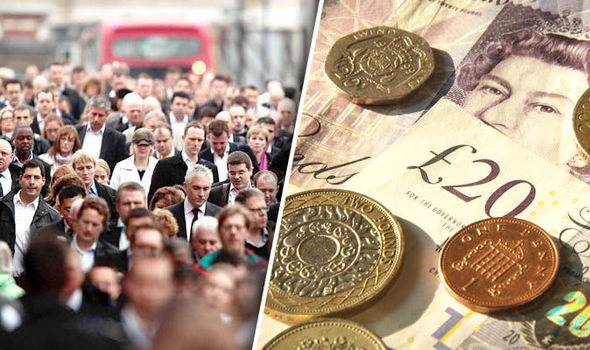-
Tips for becoming a good boxer - November 6, 2020
-
7 expert tips for making your hens night a memorable one - November 6, 2020
-
5 reasons to host your Christmas party on a cruise boat - November 6, 2020
-
What to do when you’re charged with a crime - November 6, 2020
-
Should you get one or multiple dogs? Here’s all you need to know - November 3, 2020
-
A Guide: How to Build Your Very Own Magic Mirror - February 14, 2019
-
Our Top Inspirational Baseball Stars - November 24, 2018
-
Five Tech Tools That Will Help You Turn Your Blog into a Business - November 24, 2018
-
How to Indulge on Vacation without Expanding Your Waist - November 9, 2018
-
5 Strategies for Businesses to Appeal to Today’s Increasingly Mobile-Crazed Customers - November 9, 2018
Why interest rates are likely to be lower for longer
Ben Broadbent, the deputy governor for monetary policy at the Bank, says that Britain’s job-rich recovery has been led by a higher concentration of lower-skilled employment and people new to their roles – but that in the near future, we should see this start to change.
Advertisement
The comments came after the senior Bank official claimed in a speech last night that slow wage growth and weak productivity experienced since the financial crisis may have been caused by low-skilled migration and companies investing less. Ian McCaffery was the only Monetary Policy Committee member who voted in favour of a rate increase.
Broadbent, one of four BoE deputy governors, said a possible explanation for why wages have failed to grow over the past years is that companies have increasingly employed low-skilled staff.
But Mr Broadbent said the recovery had been focused more on low-paid jobs than after the recession in the 1990s. He also highlighted that an influx of workers from overseas had helped to increase the supply of low-skilled labour, but added that there was little evidence to suggest that this dragged down overall pay growth.
‘Maybe deterrents to investment in physical capital, and new technologies, have also reduced the relative demand for high-skilled labour’. He said the euro zone was doing better than in 2014.
Despite falling unemployment, wages in the United Kingdom have stagnated since the financial crisis of 2008/2009 and inflation has been hovering around zero, complicating the Bank’s decision as to when to raise interest rates.
Broadbent said that unit labour costs – how much a business pays its staff to produce one unit – must rise before the central bank can hit its inflation target of two per cent.
Ben Broadbent told Reuters that wages needed to grow faster to push inflation towards the central bank’s 2% target.
The former Goldman Sachs economist said it was not surprising that markets had recently pushed back expectations of rate hikes given recent market turmoil inspired by China.
“We are certainly not unconcerned (but) we have pointed for a while to downside risks in the global economy”, Broadbent said, speaking in his office overlooking a courtyard at the BoE.
Advertisement
However, the banker said people “should not exaggerate” the effects of mass immigration, which has seen more than a million workers come to the United Kingdom since the EU was expanded to include eight more Eastern European countries in 2004.





























